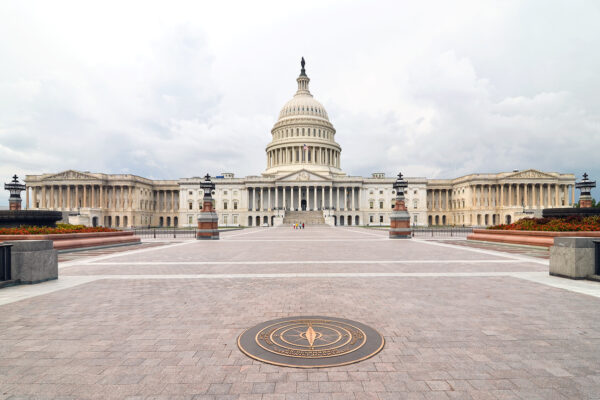
Expect plenty of coverage between now and the 2020 election about how Democrats in the United States have moved to the left.
This isn’t wrong. On everything from health care to transgender rights, Democrats have become more left-wing.
But they’re still more centrist than most center-left parties in Europe while Republicans have moved so far to the right that they now have more in common with Austria’s Freedom Party and the Alternative for Germany than they do with Britain’s Conservative Party and Germany’s Christian Democrats.
Far-right and mainstream
Data from the Manifesto Project, reported in The New York Times, shows that Republicans have become more extreme than Marine Le Pen’s National Rally in France and Nigel Farage’s old party in Britain, UKIP, both of which are considered far-right.
An emphasis on traditional morality and a “national way of life” has pushed Republicans to the right. Like the far right in Europe, Republicans now present themselves as the defenders of the “traditional” people against globalization and immigration.
The difference is that in Europe, far-right populist parties are often an alternative to the mainstream. In the United States, the Republican Party is the mainstream.
Writing on the wall
Some political scientists and journalists saw this coming.
- Thomas E. Mann and Norman J. Ornstein argued as early as 2012 that the Republican Party was becoming an “insurgent outlier” in American politics.
- James Fallows wrote in 2015 that the Republican Party was going through “a push to the extreme” unseen in American politics since at least the Barry Goldwater era — “and probably since long before.”
- Mona Charen blamed right-wing opinionmakers in 2016 for promoting the false narrative that the Republican “grassroots” had been betrayed by Republican leaders in Washington.
This culminated in the candidacy and presidency of Donald Trump, which I argued at the time was the result of years of Republican surrender to the hard right.
Consequences
It’s Trump’s party now, with dire consequences.
- As Mann and Ornstein warned, when one of the two parties in a two-party system moves so far out of the mainstream, governing becomes virtually impossible. The Republican majority in the Senate has given up on legislating and few Republicans in either chamber are standing up to Trump’s abuses of power, exacerbating the problem of an evermore powerful presidency. (I recommend Gene Healy’s The Cult of the Presidency on this, which can be downloaded for free (PDF) from the Cato Institute.)
- The parties are becoming more polarized. White, rural, older and undereducated voters are sorting in the Republican Party. Democrats have become a coalition of racial minorities, city-dwellers, the young and the college-educated. Neither side talks much to the other, as a result of which neither side understands the other. This is toxic to democracy.
- Zack Beauchamp argues that Republicans have become so afraid of Democratic rule that they are willing to subvert democracy to prevent it.
- More and more decisions (including on abortion, gay rights, gun laws and union power) are deferred to judges when they should be made by politicians. This politicizes the courts, which could ultimately undermine confidence in the judicial system if it is seen as beholden to one side.
Solutions?
I doubt moderation will come from within the Republican Party. There are few Republicans willing to call out the radicalization in their midst, of which Trump is the loudest and most powerful example. I applaud those conservatives who are standing on principle, but they are the minority in what has become a reactionary — and in some cases crypto-fascist — movement.
Better to go to the root cause, which is polarization, caused by extreme partisanship, which is an outgrow of the two-party system.
Ideas include:
- Creating multi-member congressional districts and/or introducing French-style runoffs to allow third parties to thrive without player spoiler.
- Appointing a European-style prime minister to work with Congress and outsourcing protocol to the vice president.
- Abolishing or expanding the Electoral College, and reforming the Senate or splitting up California into several states, so neither the president nor a Senate majority can be elected by a minority of voters.
- Extending statehood to Puerto Rico, the District of Columbia and perhaps Native American tribes.
- Taking judicial appointments out of the hands of politicians. In most other democracies, judges appoint their own.
Are all of these reforms likely to happen? Probably not. But even one or two would make a difference.
